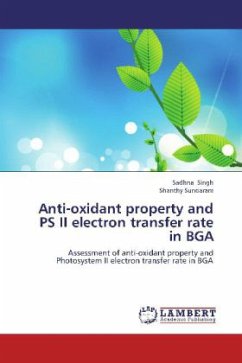This work presents evidence of a natural ability of cyanobacteria to degrade various industrial pollutants. They have developed a number of mechanisms by which cyanobacteria defend themselves against environmental stressors. Its growth was monitored by measurement of chlorophyll. The loss of chemicals from growing cultures of cyanobacteria cannot be attributed to sequestration, because chemicals (benzene, toluene and paranitrophenol) were not lost from suspensions of boiled cells and could not be recovered from disrupted, lyophilized cells. They degrade them but are not dependent on them for their growth and viability.It reports that some cyanobacteria (Nostoc, Anabaena, Synechococcus & Spirulina) have a natural ability to degrade industrial pollutants such as benzene, toluene and paranitrophenol.On the basis of the results cyanobacteria can be considered for low-cost, low-maintenance remediation of pollutants in surface waters.








